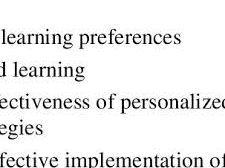In today’s rapidly evolving healthcare landscape, technology plays a pivotal role in improving patient care, enhancing operational efficiency, and driving innovation. One such technology that has gained popularity in recent years is Software as a Service (SaaS) SaaS Development Company. According to Gartner – SaaS is defined as ”software that is owned, delivered, and managed remotely by one or more providers. The provider delivers software based on one set of common code and data definitions that is consumed in a one-to-many model by all contracted customers at any time on a pay-for-use basis or as a subscription-based on use metrics.”
By leveraging cloud-based software delivery, SaaS offers numerous benefits for healthcare organizations seeking to streamline their operations and deliver high-quality care to patients. In this blog, we’ll delve into the five key benefits of adopting healthcare SaaS solutions, exploring how they can improve healthcare delivery and management. Additionally, our team specializes in Software Product Engineering and React Native App Development Company, ensuring tailored
1. Cost Efficiency:
In an era of increasing financial pressures, maintaining costs is crucial for healthcare organizations. Traditional software deployment models often require a huge sum of investments in hardware, infrastructure, and licensing fees. In contrast, SaaS solutions offer a more cost-effective alternative by eliminating the need for on-premises hardware and software installations.
With SaaS, healthcare organizations can benefit from a predictable subscription-based pricing model, which includes regular updates and maintenance at no additional cost. This shift from capital expenditures to operational expenditures enables organizations to allocate resources more efficiently, redirecting funds toward patient care and strategic initiatives.
Moreover, SaaS solutions typically offer scalability, allowing healthcare organizations to scale their software usage up or down based on fluctuating demand. This scalability eliminates the need for costly hardware upgrades and ensures that organizations only pay for the resources they use which optimises their IT spending.
2. Scalability and Flexibility:
Healthcare is a dynamic industry that requires adaptable solutions capable of accommodating evolving needs and regulations. SaaS solutions excel in this regard, offering unparalleled scalability and flexibility to meet the diverse requirements of healthcare organizations.
With SaaS, healthcare providers can easily scale their software usage to accommodate growth, whether it’s adding new users, expanding into new markets, or integrating additional functionalities. This agility empowers organizations to respond swiftly to changes in patient volumes, regulatory requirements, and technological advancements, ensuring they remain competitive in a rapidly changing landscape.
Furthermore, SaaS solutions are inherently flexible, allowing organizations to customize and configure the software according to their specific workflows and preferences. Whether it’s tailoring clinical templates, automating administrative tasks, or integrating with third-party systems, SaaS offers unparalleled flexibility to adapt to the unique needs of each healthcare organization.
3. Accessibility and Mobility:
In today’s digitally connected world, accessibility is no longer confined to the boundaries of the hospital or clinic. Healthcare professionals require instant access to patient data and software tools from any location, at any time, to deliver timely and informed care. This is where SaaS solutions shine, offering seamless accessibility and mobility to healthcare providers across the globe.
By leveraging the power of the cloud, SaaS solutions enable healthcare professionals to access critical patient information, clinical workflows, and decision support tools from any internet-enabled device. Whether it’s reviewing lab results on a tablet, updating electronic health records (EHRs) on a smartphone, or participating in telemedicine consultations from a remote location, SaaS solutions empower healthcare professionals to deliver care whenever and wherever it’s needed.
Moreover, the mobile-friendly nature of SaaS solutions facilitates remote patient monitoring and telehealth initiatives, allowing healthcare organizations to extend their reach beyond traditional care settings. This improves patient access to care and enhances convenience and patient engagement, leading to better health outcomes.
4. Enhanced Security and Compliance:
Protecting sensitive patient data is a top priority for healthcare organizations, given the increasing frequency of cyber threats. SaaS solutions offer robust security measures to safeguard patient information and ensure compliance with strict regulatory requirements, such as the Health Insurance Portability and Accountability Act (HIPAA).
Leading SaaS providers employ advanced encryption techniques, multi-factor authentication, and regular security audits to protect data both in transit and at rest. Additionally, SaaS solutions often include built-in backup and disaster recovery capabilities, ensuring data integrity and availability in case any unforeseen incidents take place.
Furthermore, SaaS providers undergo rigorous compliance assessments to ensure adherence to industry standards and regulations, such as HIPAA, GDPR (General Data Protection Regulation), and HITECH (Health Information Technology for Economic and Clinical Health) Act. By partnering with reputable SaaS vendors, healthcare organizations can mitigate compliance risks and focus on delivering quality care to their patients.
5. Streamlined Operations and Improved Patient Care:
At the heart of every healthcare organization, lies a commitment to delivering exceptional patient care efficiently and effectively. SaaS solutions play a pivotal role in achieving this goal by streamlining administrative processes, optimizing clinical workflows, and empowering healthcare professionals to focus on what matters most (i.e. patient care).
By automating routine tasks such as appointment scheduling, billing, and claims processing, SaaS solutions reduce administrative burdens and free up valuable time for healthcare staff to spend with patients. This not only improves operational efficiency but also enhances patient satisfaction by minimizing wait times and administrative errors.
Moreover, SaaS solutions facilitate seamless collaboration and information sharing among care team members, enabling coordinated care delivery and better patient outcomes. Whether it’s sharing real-time updates on patient status, collaborating on treatment plans, or accessing clinical decision support tools, SaaS solutions empower healthcare professionals to deliver personalized, evidence-based care to every patient.
Future Outlook
The future outlook for healthcare SaaS solutions is characterized by a convergence of cutting-edge technologies and evolving patient-centric models of care. Artificial intelligence (AI) and machine learning (ML) will empower SaaS platforms to deliver advanced clinical decision support and personalized medicine, while the proliferation of Internet of Things (IoT) devices will facilitate remote monitoring and early intervention.
Furthermore, the consumerization of healthcare will drive the development of intuitive patient portals and mobile applications, empowering patients to take an active role in managing their health. Overall, the future of healthcare SaaS solutions holds promise for revolutionizing care delivery, enhancing patient outcomes, and shaping the future of healthcare.
In conclusion, the adoption of healthcare SaaS solutions offers various benefits for healthcare organizations, ranging from cost efficiency and scalability to accessibility and enhanced security. By embracing cloud-based software delivery, healthcare providers can unlock new levels of efficiency, innovation, and patient-centered care, ultimately shaping the future of healthcare delivery.



